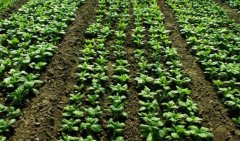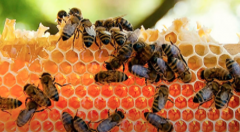Tariffs on agricultural products, sea scallop, yam and other imported agricultural and fishery products, tariff halving assessment
Import tariffs on sea scallops, yams, satsuma oranges, and prepared milk skins and other agricultural products and processed foods are expected to be halved! At the request of the industry, the Ministry of Finance is reviewing the possibility of tariff reduction for agricultural and fishery products, processed foods and grain wines, five of which are related to the Council of Agriculture. After inventory, the International Department of the Council of Agriculture believes that the impact on related industries is not significant. These tariff reductions involve amendments to the law, which must be passed by the Executive Yuan and sent to the Legislative Yuan for deliberation.
Five agriculture-related products, the International Office said, sea scallop after 2016 there is no domestic production data; There is a clear distinction between the price and eating methods of imported yam and domestic yam; Although Wenzhou mandarin orange is also produced in China, the quantity is very small, and the impact on the overall citrus industry is also small; As for the preparation of milk skin, there is no production in China. If the tariff is halved, it can also benefit the processing industry, and it is also the only project without tax loss.
The International Affairs Office points out that both the industrial sector and the agricultural sector will have to face the wave of trade liberalization, and will continue to review the tariff reduction items in the future, and it will not be limited to these few types this year. However, tariff reduction must be amended and approved by the Legislative Yuan for the third reading. The International Department explained that after joining the WTO, it will review from time to time according to the requirements of importers, domestic raw material users, or processing plants, and at the same time prepare for economic and trade liberalization. This is a way to show determination.

Import operators call for tariff reduction, domestic operators demand matching
A public hearing was also held recently to listen to the opinions of domestic businesses on the halving of tariff rates on imported scallops, yams and other ten agricultural and fishery products, processed products and grain alcohol. Lin Jiarong, deputy director of the International Department, said that domestic operators believe that if imported products may affect domestic consumption of related products, they should evaluate the substitutability of similar products, and it is not appropriate to reduce taxes before they are fully integrated.
According to the annual fishery statistics report of the Fisheries Department, sea scallop is not the main raw product of our country. The annual output is 2 metric tons in 2014 and 59 metric tons in 2015. There is no production data after 2016. As for the import situation, the average annual import volume from 2014 to 2017 is 158 metric tons of live, fresh or frozen scallops, with a tariff rate of 10%, 79 metric tons of dried, salted or marinated scallops, with a tariff rate of 12.5%. If the tariff is halved, the tax loss is about 6.372 million yuan. According to the assessment of the International Department, China's scallop production is very small and has product differentiation with other aquatic products, so the tariff reduction has little impact on the industry.
For yam, the domestic output in 2017 is 14,711 metric tons. The main production areas are Nantou County, Changhua County and New Taipei City. The import is not small. From 2014 to 2017, the annual average is 3021 metric tons, accounting for about 17% of domestic consumption. The tariff rate on imported yam is 16%, which is 8% after halving. The tax loss is about 23.529 million yuan.
Domestic yam is mostly cooked before eating varieties, the international office pointed out that the wholesale price of domestic yam 43 yuan per kilogram, imported yam average price 104 yuan per kilogram, obviously there is a difference, imported yam is mostly supplied to medium-and high-priced supermarkets or Japanese restaurants, mainly fresh food, domestic yam more cooked vegetables, the market has been separated, so even if the tariff on imported yam halved, the impact on China's industry should be limited.
Satsuma orange belongs to citrus, domestic citrus planting area is large, Satsuma orange tariff if halved from 30% to 15%, fear will receive greater attention. Wenzhou mandarin orange is also planted in China, with an output of 190 metric tons. The main production area is Taichung City. The average annual import volume from 2015 to 2018 is 174 metric tons, almost equivalent to the domestic output. However, according to the International Office, Wenzhou mandarin orange imports account for only 0.03% of the total consumption of 530,000 metric tons of Chinese citrus. After the tariff is halved, the tax loss is estimated to be 4.584 million yuan. At the same time, China's tariffs on Satsuma oranges are higher than those of other countries, 17% in Japan and 12% in China, so there is room for moderate reduction.
If the tariff is lowered, the tax will not decrease but increase
However, there is one product that can increase tax revenue by lowering tariffs, that is, milk skin preparation. According to the International Office, China's annual output of raw milk is 386,000 metric tons, 84% of which is used for fresh milk products, and the rest is made into flavored milk, fermented milk, long-lasting milk and other dairy products. Therefore, 99.9% of them are made into liquid milk. There is almost no production of milk skin prepared from deeply processed products. The annual import volume is 398 metric tons, and the tariff rate is 20%. If it is reduced to 10%, it is expected to enhance the competitiveness of the processing industry and eventually increase tax revenue. The assessment will add $2.003 million in tax revenue.
According to the International Department, imported prepared milk skin is mainly used to supply the demand of domestic baking industry, which is different from domestic raw milk products. Lowering tariffs can reduce the import cost of enterprises and enhance the competitiveness of processing industry.
- Prev

How to plant spinach seeds? Spinach planting techniques and time introduction to teach you to grow spinach
Spinach, do you like this kind of vegetable? Do you want to plant it yourself? Let's learn about the techniques of growing spinach. Spinach is a cool seasonal crop that develops best in the process of rapid and sustained growth. Provide plenty of sunshine
- Next

The effect of less flowering of longan and litchi on honey yield, and the effect of warm winter decreased honey yield.
Affected by the warm winter and drought, the flowering rate of litchi and longan is only 20% this year, and the production of longan honey and litchi honey is also affected. Zheng Jinkun, director of Taiwan Beekeeping Association, explained that the output of longan and litchi honey this year is only 10%. Expect the Council of Agriculture
Related
- A course of planting techniques and methods on how to grow carrots
- How to plant the latest tulips?
- Is it better to pick tea in the morning or in the afternoon? When is the best time for tea to be picked? what is the third or fifth tea?
- Launch Yuanxiao Happy combination Haocha + Tea Yuan healthy Taste
- Penghu Tourism "Fireworks 20 Parade with You"
- 2022 West Lake Happiness holds "Digital Revitalization Voucher" and draws iphone13 and laptop.
- Banqiao Fuzhou social houses are designed to change start-up combined with police elimination to create a safe and livable environment
- The convenient measure of "mechanical weeding" in Xinbei has been abused and the Agriculture Bureau has imposed heavy penalties on the illegal land consolidation.
- Changgeng University Joins Hands with Four Memory Factories to Rescue Memory Talent Shortage
- The list of Taiwan's top 100 MVP managers is listed by the Director-General of the Farmers' Association of Sanxia District.

